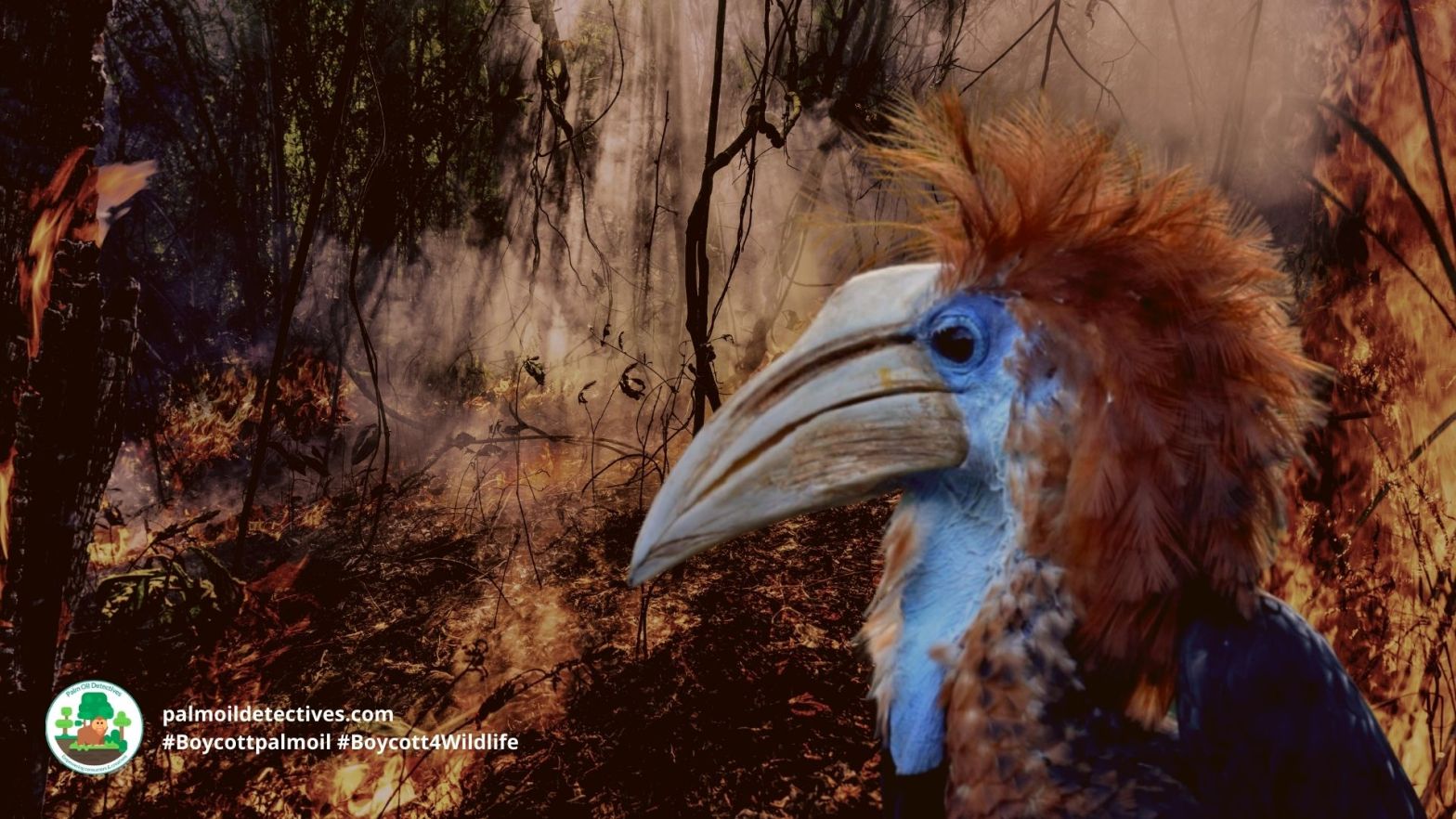The yellow-casqued hornbill is one of the largest birds in the rainforests of West Africa weighing up to two kilos. They prefer to live high up in the rainforest canopy in Côte d’Ivoire, Ghana, Liberia, Mali and Sierra Leone. Their main threat is hunting and human persecution and they are possibly extinction now in some countries. Recent mass deforestation for mining, palm oil, cocoa and meat is also a threat and they are now vulnerable. Help them every time you shop and be #vegan, #Boycottpalmoil, #Boycott4Wildlife
Yellow-casqued hornbills are #vulnerable in #WestAfrica due to #hunting, #palmoil #meat and #cocoa #deforestation across their range. Help save them and be #vegan #Boycottpalmoil #Boycott4Wildlife
Tweet
A shock of fiery red feathers and blue rimmed eyes announce the arrival of the majestic yellow-casqued #hornbill. They are vulnerable from #deforestation and #hunting in #WestAfrica. Fight for them and #Boycottpalmoil #Boycott4Wildlife
Tweet
Yellow-casqued Hornbill Ceratogymna elata
Vulnerable
Extant (resident)
Cameroon; Côte d’Ivoire; Ghana; Guinea; Guinea-Bissau; Liberia; Mali; Nigeria; Senegal; Sierra Leone
Possibly Extinct
Togo
Appearance & Behaviour
One of the largest birds in West African the yellow-casqued hornbill has a shock of russet coloured feathers and a striking blue coloured face. They live in the forest canopy and rarely venture to the ground. Generally, they live in family groups of generally one adult female and male birds and two juveniles.
When a large ant or termite nest is discovered occasionally the birds will gather in large flocks to penetrate the nest.
These hornbills are predated upon by crowned hawk eagles. Under threat from these eagles, a flock of hornbills will mob the birds as a group and call together loudly. This collective alarm call may serve to deter the eagles from hunting them.
Threats
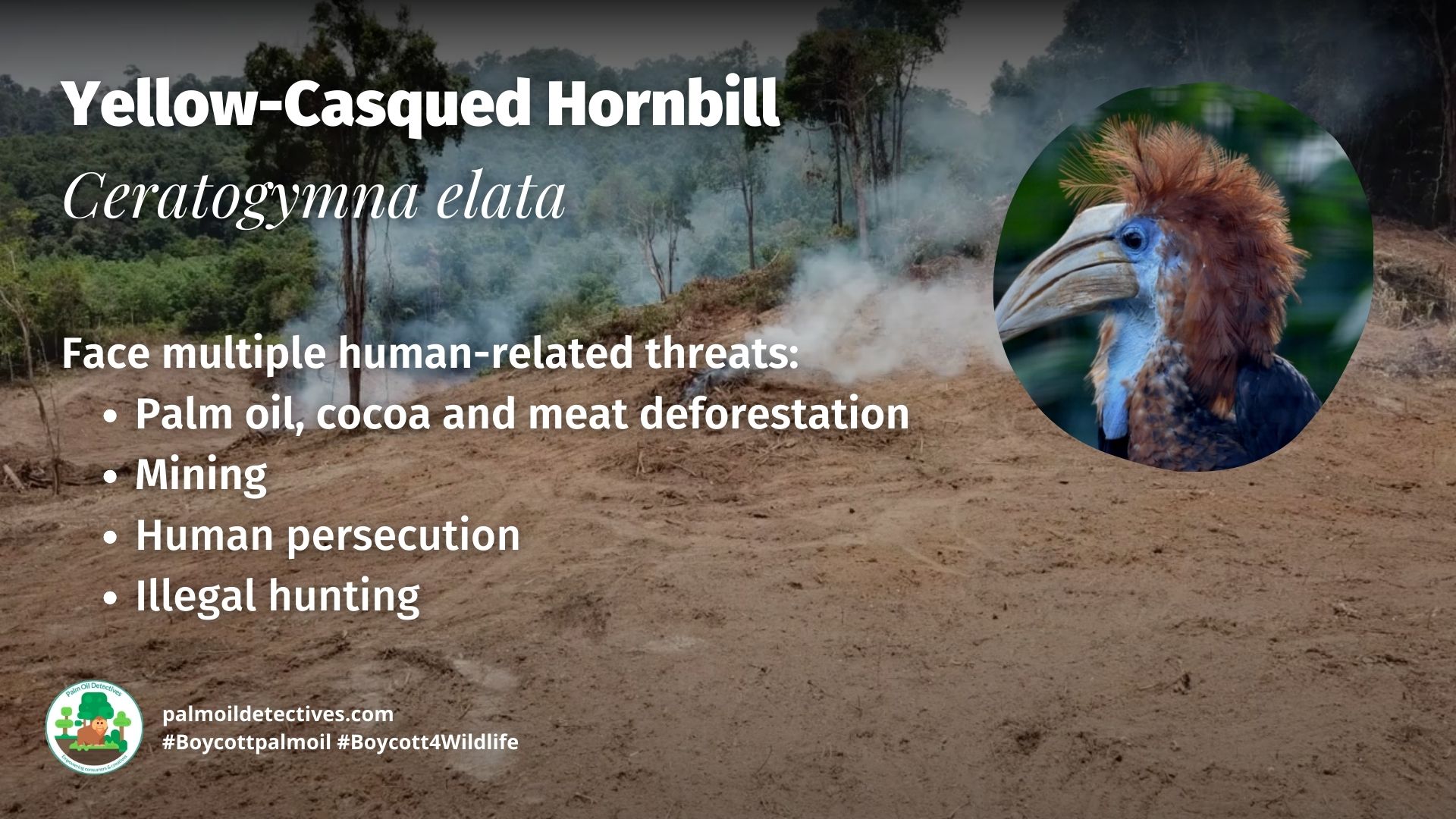
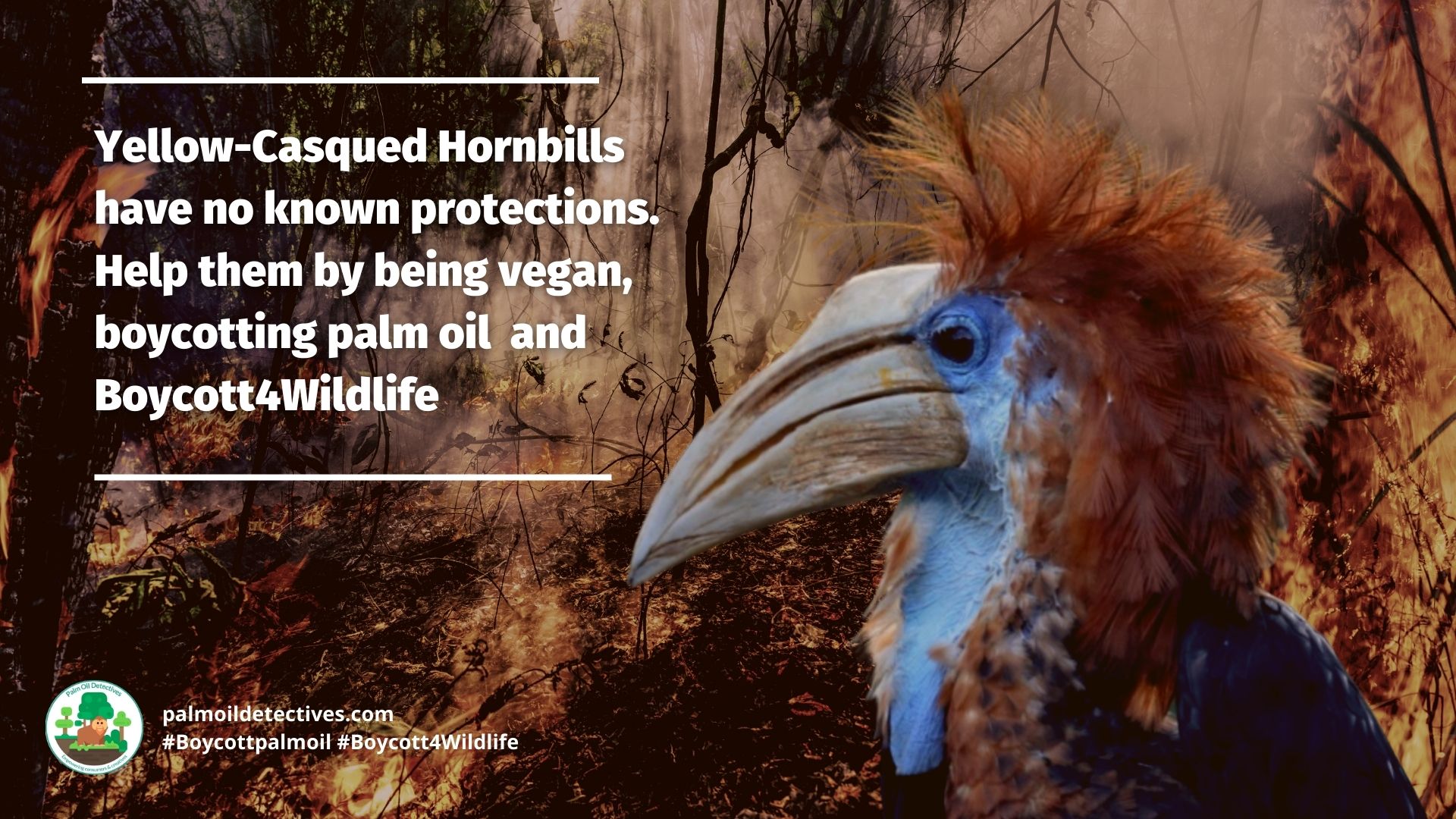
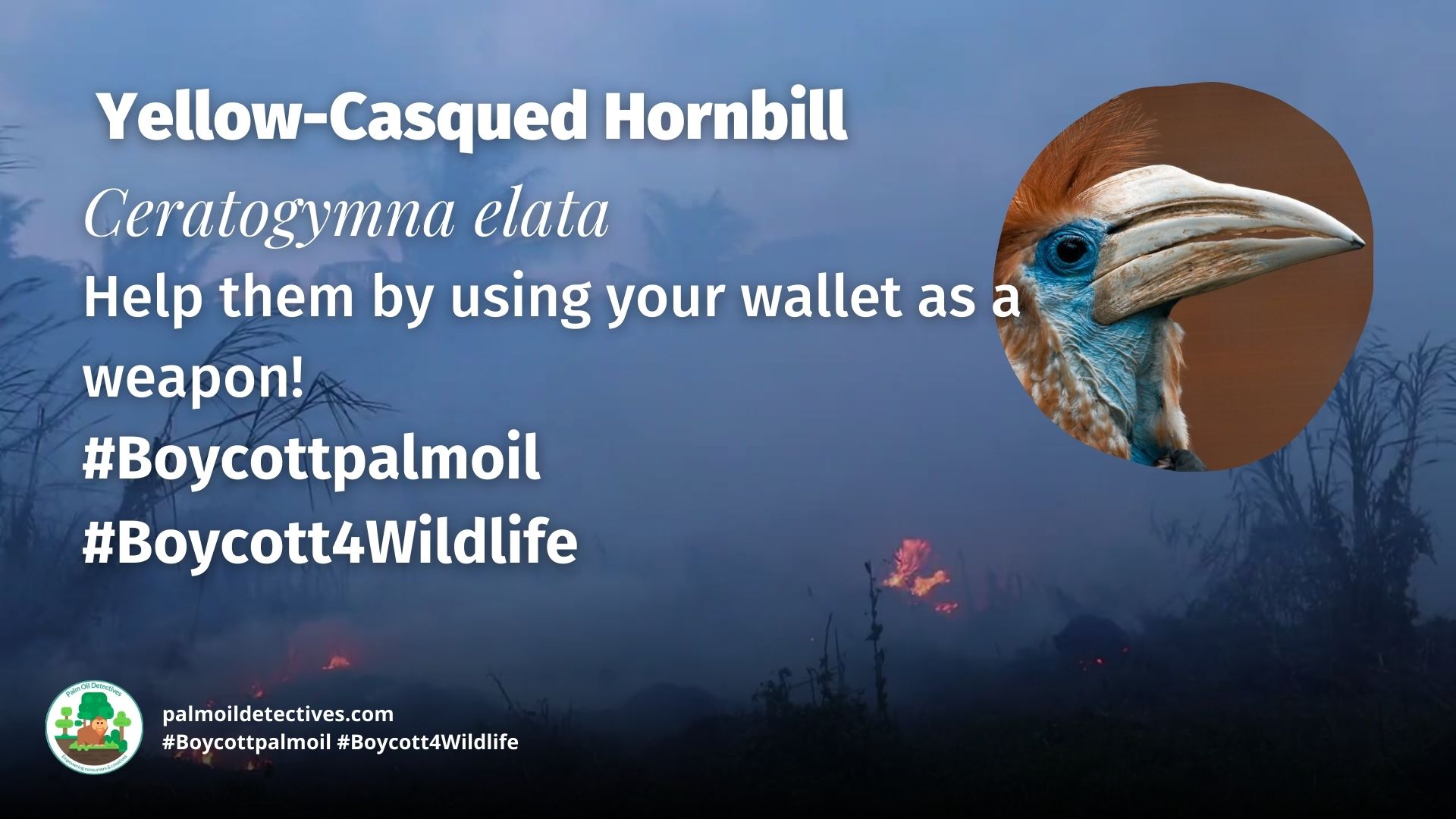
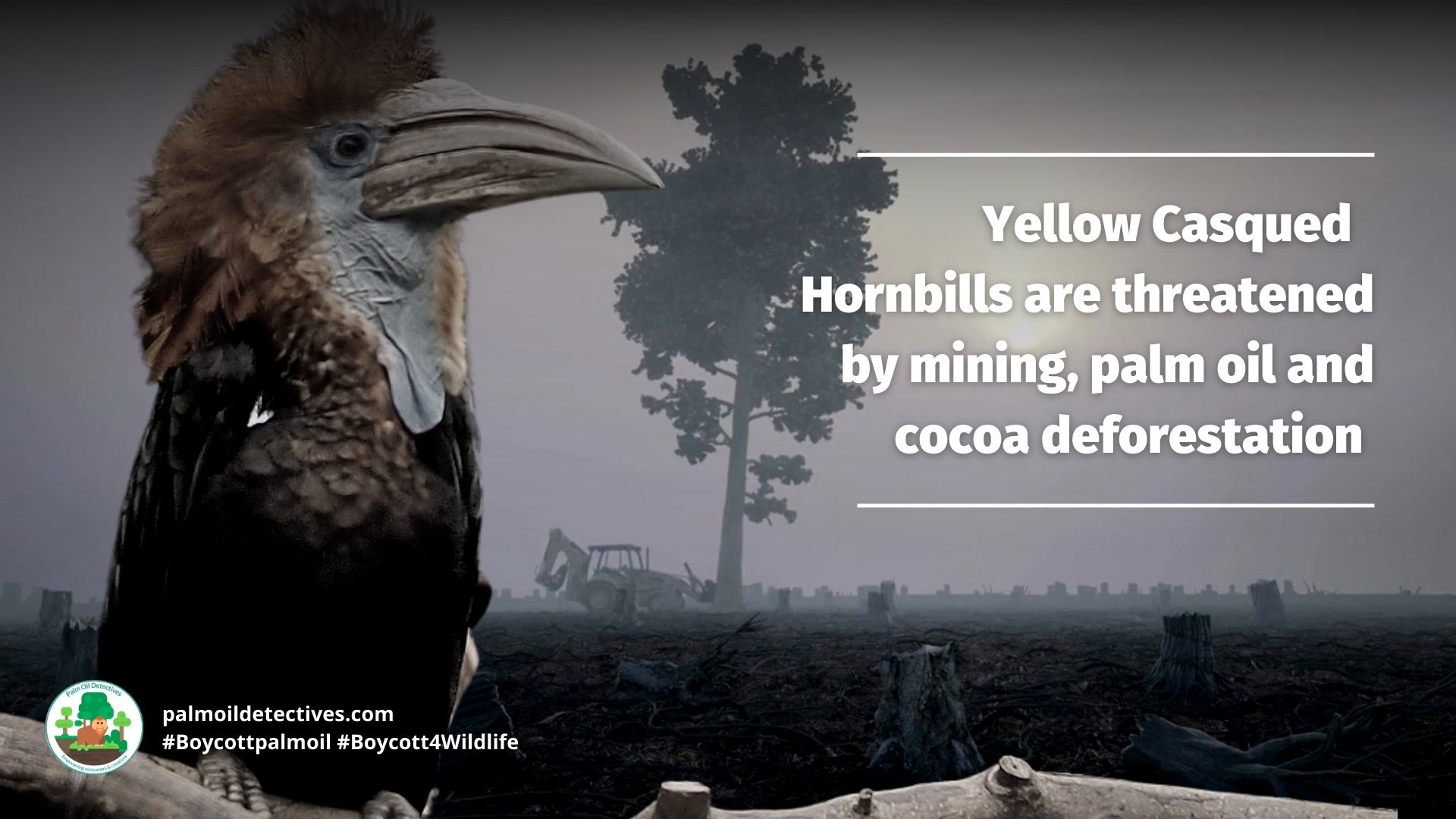
Rapid destruction of their range across several countries in West Africa has meant that the yellow-casqued hornbill is now classified as vulnerable.
They face numerous anthropogenic threats including:
- Hunting is a major threat: Humans have predated upon these birds and overhunted them causing serious decline in their numbers.
- Deforestation for palm oil, meat and cocoa: Increasing fragmentation of rainforests in West Africa has meant the birds are restricted in food sources and their populations have reduced as a result.
- Climate change: Is also thought to be an additional threat.
The species is on the way out in eastern Ghana, and it is likely extinct in Togo (F. Dowsett-Lemaire in litt. 2016). Its disappearance from Bia NP, where there have been no records since 1991 (Dowsett-Lemaire and Dowsett 2011a), is probably related to uncontrolled hunting and the logging of the southern section in the 1990s. The species’s fate in south-western Ghana is very unfavourable, with most habitat expected to be lost to timber extraction and agricultural encroachment, and habitat in reserves expected to be lost by the early 2030s (Dowsett-Lemaire and Dowsett 2014).
IUCN Red List
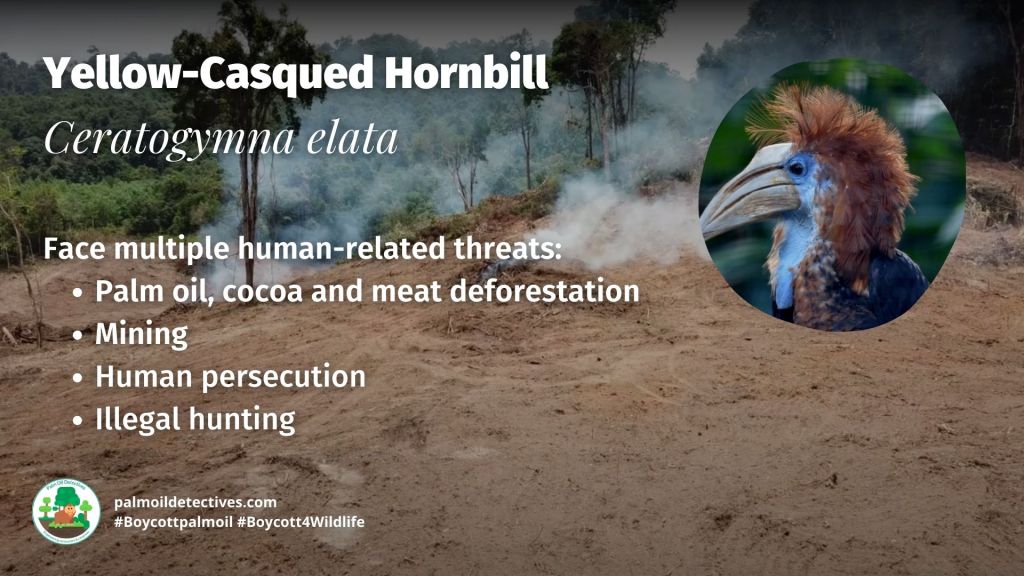
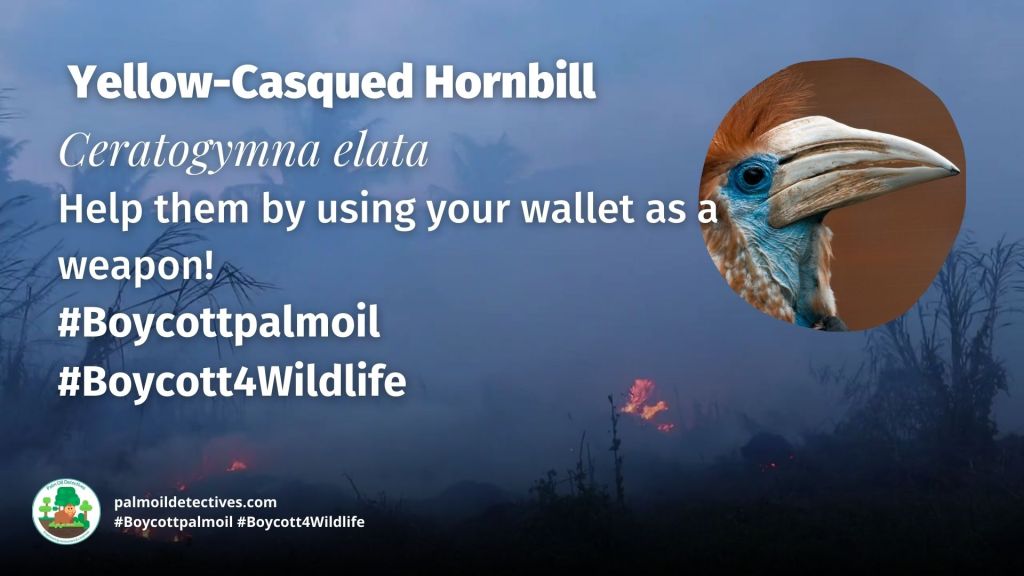
Habitat
Yellow-casqued hornbills prefer to live their lives high up in the tree canopy of primary forest. However they are known to also survive in logged, riverine or secondary forests. They migrate according to food availability.
Diet
These birds are primarily folivores and insectivores who consume seeds, small insects, spiders and scorpions. The birds congregate in large flocks to invade termite mounds.
Support yellow-casqued hornbills by going vegan and boycotting palm oil in the supermarket, it’s the #Boycott4Wildlife
Support the conservation of this species
This animal has no protections in place. Read about other forgotten species here. Create art to support this forgotten animal or raise awareness about them by sharing this post and using the #Boycottpalmoil #Boycott4Wildlife hashtags on social media. Also you can boycott palm oil in the supermarket.
Further Information
BirdLife International. 2016. Ceratogymna elata. The IUCN Red List of Threatened Species 2016: e.T22682627A92954374. https://dx.doi.org/10.2305/IUCN.UK.2016-3.RLTS.T22682627A92954374.en. Accessed on 31 October 2022.
Yellow-casqued hornbill Wikipedia article: https://en.wikipedia.org/wiki/Yellow-casqued_hornbill
Yellow-casqued hornbill Animalio.bio: https://animalia.bio/yellow-casqued-hornbill
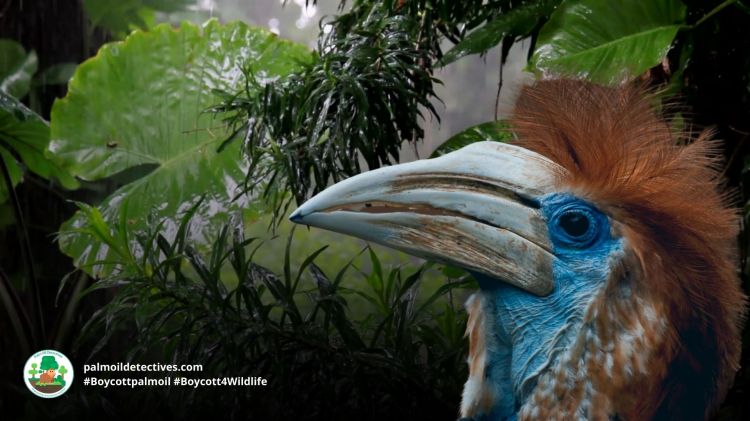

How can I help the #Boycott4Wildlife?
Contribute in five ways
1. Join the #Boycott4Wildlife on social media and subscribe to stay in the loop: Share posts from this website to your own network on Twitter, Mastadon, Instagram, Facebook and Youtube using the hashtags #Boycottpalmoil #Boycott4Wildlife.
2. Contribute stories: Academics, conservationists, scientists, indigenous rights advocates and animal rights advocates working to expose the corruption of the palm oil industry or to save animals can contribute stories to the website.
3. Supermarket sleuthing: Next time you’re in the supermarket, take photos of products containing palm oil. Share these to social media along with the hashtags to call out the greenwashing and ecocide of the brands who use palm oil. You can also take photos of palm oil free products and congratulate brands when they go palm oil free.
4. Take to the streets: Get in touch with Palm Oil Detectives to find out more.
5. Donate: Make a one-off or monthly donation to Palm Oil Detectives as a way of saying thank you and to help pay for ongoing running costs of the website and social media campaigns. Donate here

